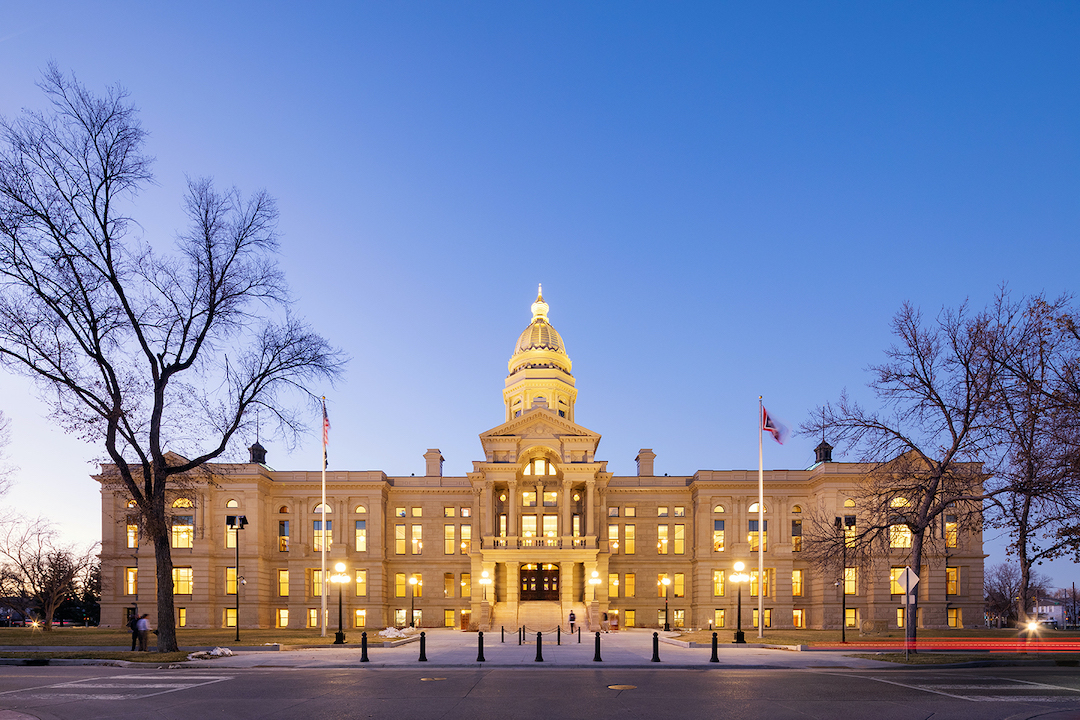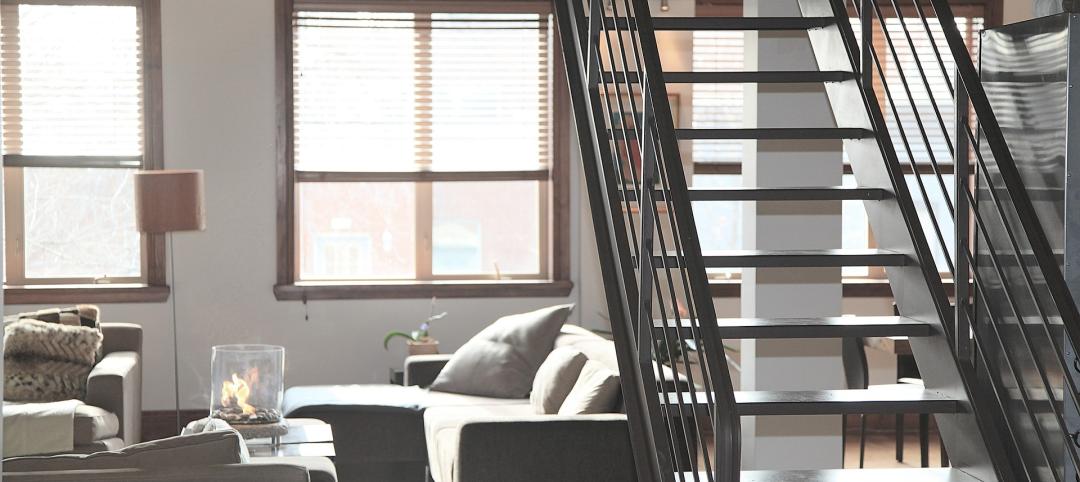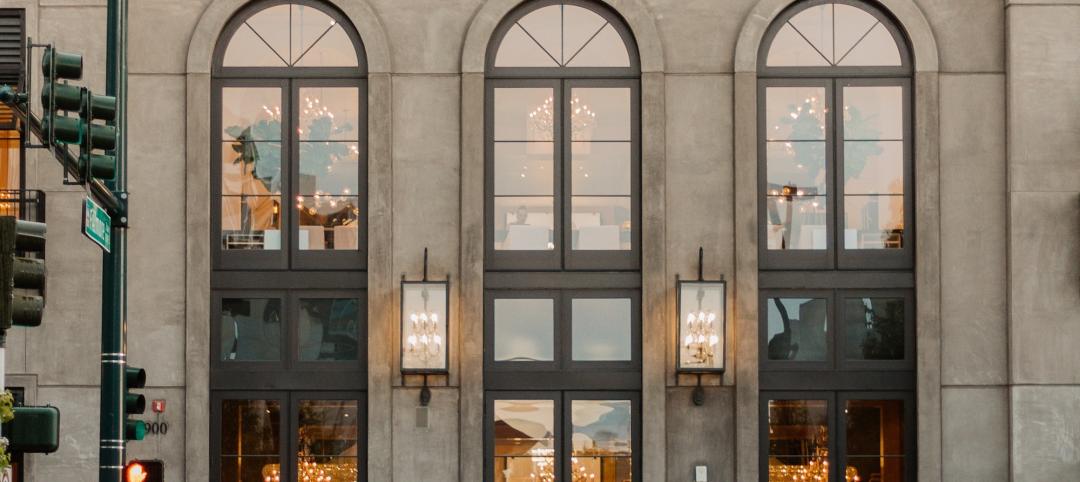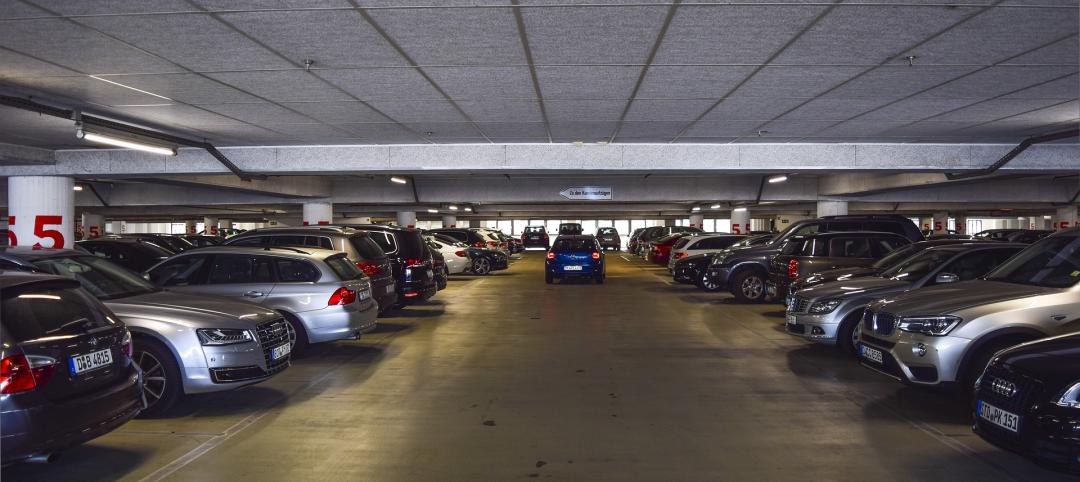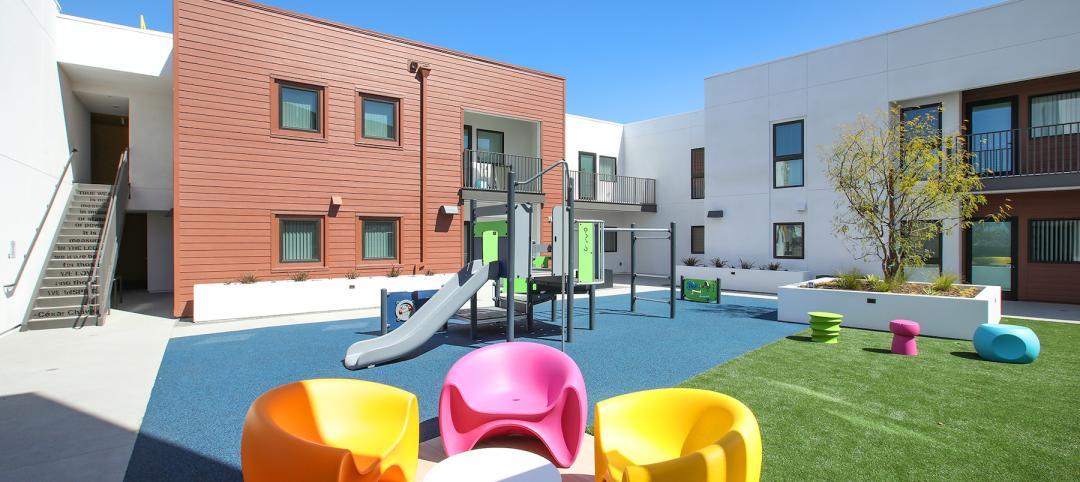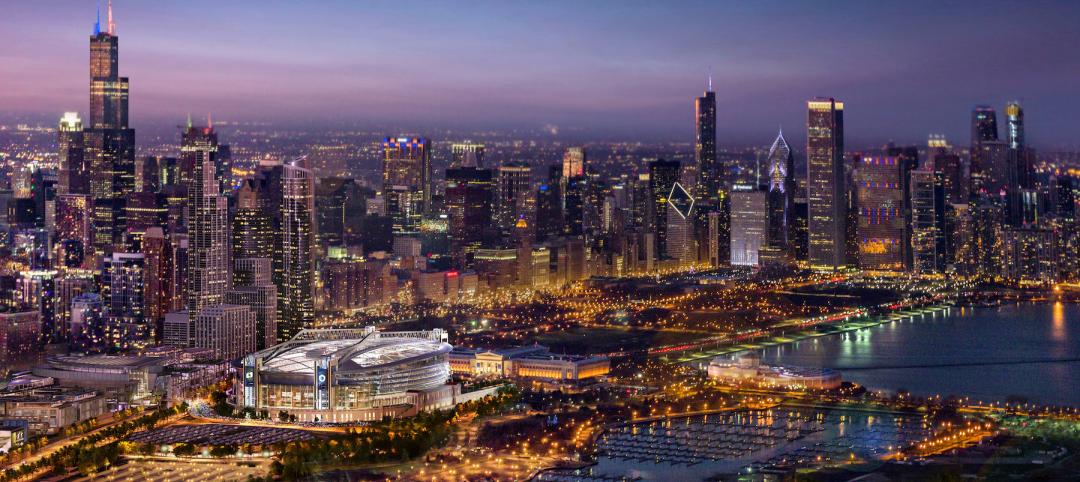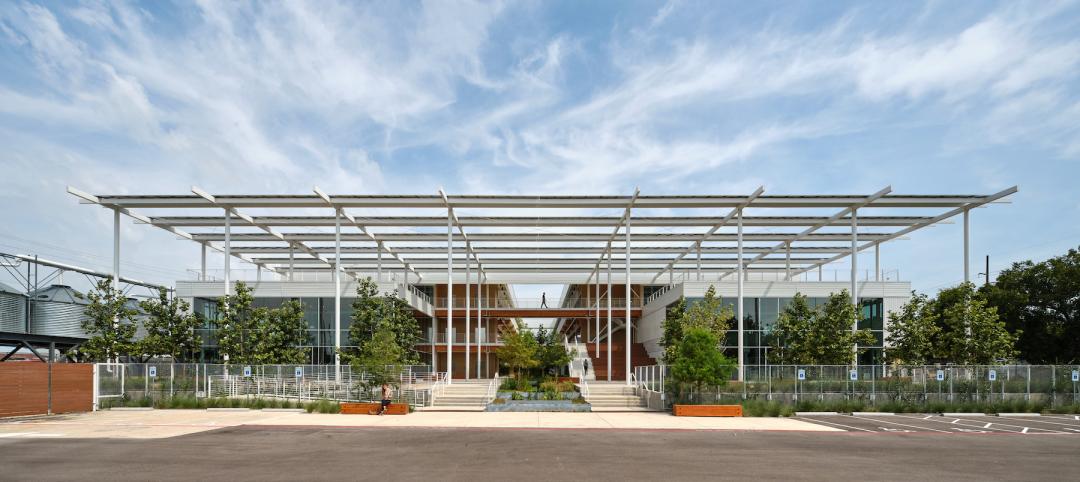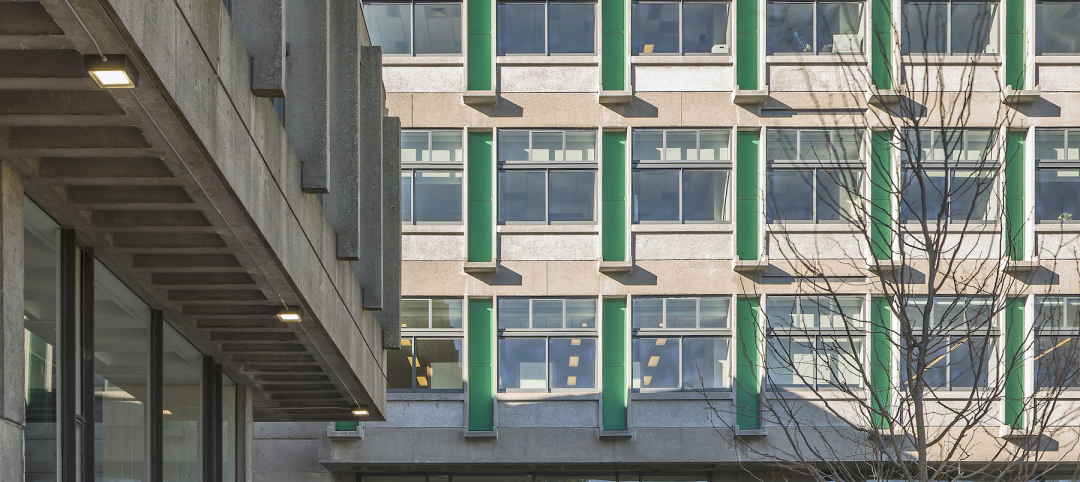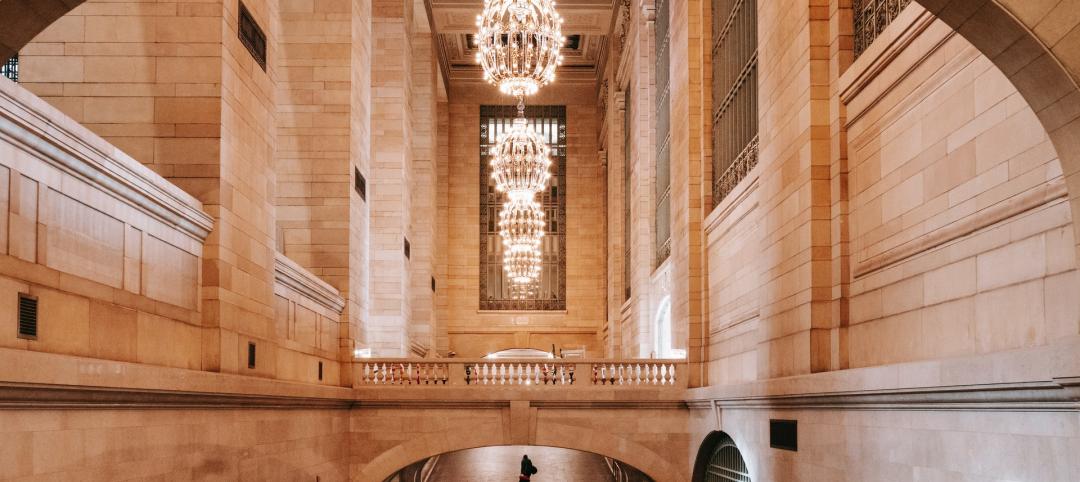Originally built in 1886, the Wyoming Capitol Square has recently undergone a renovation project of the 129,539-sf Historic State Capitol, the 360,862-sf Herschler Office Building, and an underground connector gallery that serves as a tunnel for the Capitol Square.
The $300 million project replaced outdated building systems, added critical life safety infrastructure, and addressed public space needs, especially for larger meeting rooms. The Herschler Building was remodeled and expanded by 56,000 sf to house state agencies and elected officials. The atrium on the north side of the building was removed to improve and restore views to the Capitol.
The Capitol Extension, a below-grade building that connects the Capitol to the Herschler Building, has been expanded by 28,000 sf to accommodate public space needs that could not be met in the Capitol. These spaces include large public meeting rooms, a 238-seat auditorium, a visitor’s center, and a student learning center.
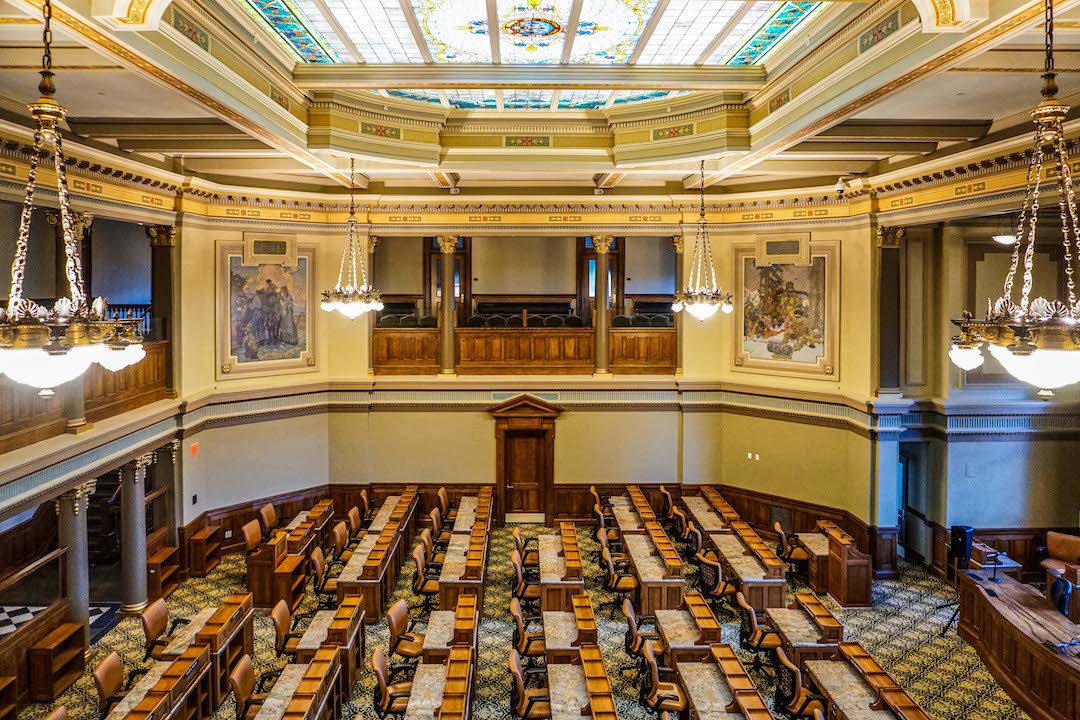 Photo: Dan Schwalm Photography.
Photo: Dan Schwalm Photography.
A new below-grade utility plant, which serves five state buildings, was also included to replace the aging central utility plant originally located in the connector. In order to move the MEP systems below grade, existing rubble, masonry, and concrete footings needed to be repaired. The build team coordinated and installed over 600 micropyles with shotcrete foundations to stabilize existing foundations and allow MEP systems to run below footings without destabilizing them.
The project’s attention to detail sets it apart from many other renovation and restoration efforts. Many small details were restored and recreated by hand.
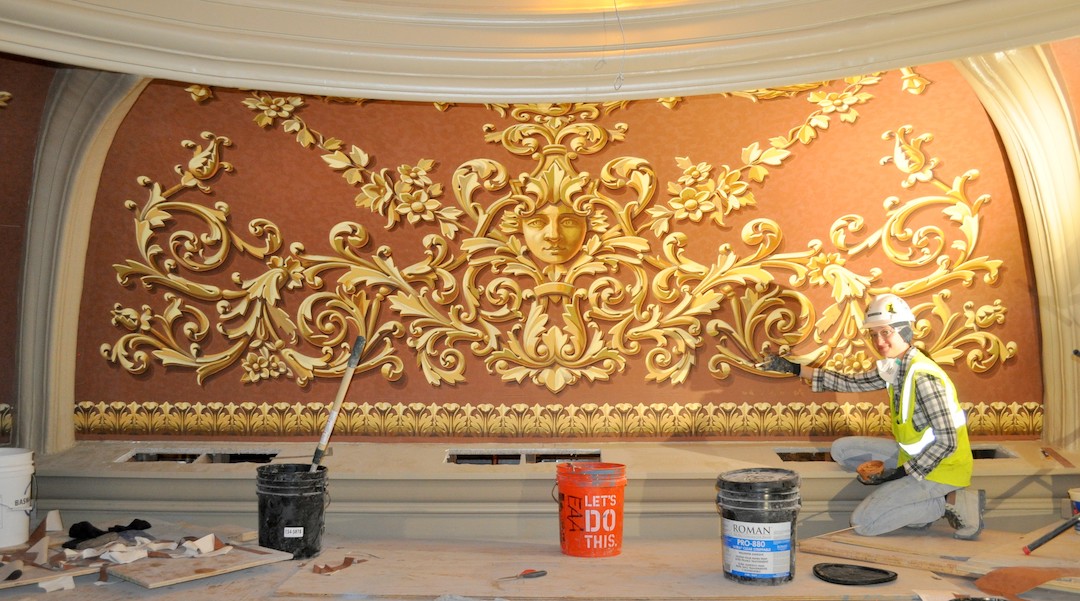
For example, previous restoration efforts painted over many decorative paintings and details within the building. The build team wanted to restore these details to their previous luster. This meant removing the paint layer by layer to expose the original decorative paint schemes and colors, and then recreating and restoring them. An original painting at the top Capitol Rotunda (above) was slowly revealed and then hand painted to recreate the original work.
Murals that had previously been painted over and forgotten about were rediscovered on six vault doors. After being restored to their original state, the murals became a highlight of the project as they were not previously documented and had not been seen by the public for decades. Other interior efforts included restoring original marble floors and elaborate woodwork throughout the building.
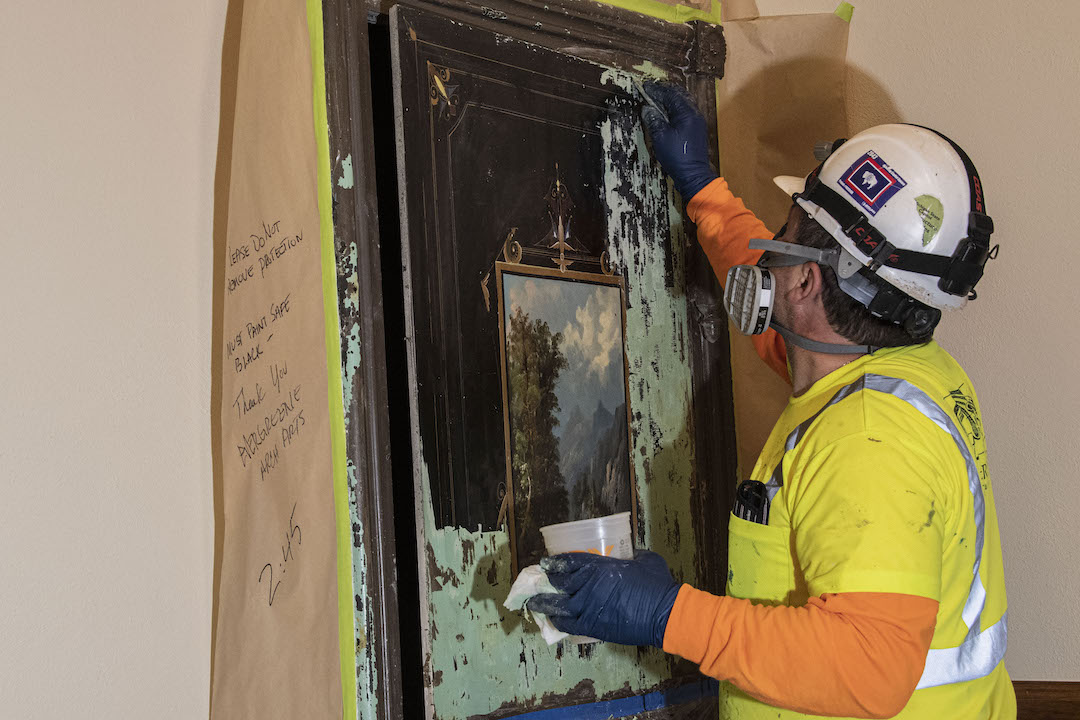 Photo: Girt Communications.
Photo: Girt Communications.
The exterior of the building also required meticulous restoration efforts. The Capitol dome was regilded in gold while hand carved stone elements that had been deteriorated by weather over the last 100+ years were recreated by hand. The replacement and restoration of the original sandstone required the reopening of the original quarry where the stone was mined in Rawlins, Wyo. The quarry had been closed for over 100 years but reopening it allowed the build team to get the exact same stone as was used in the original construction.
Photo: Girt Communications.
The building’s original architect created four niches in the Capitol Rotunda that were meant to be adorned by statues, but the vision never came to fruition. The project sought to change that. Delissalde, a sculptor, was commissioned to create four statues to place in these niches and complete the original vision of the architect from 130 years ago.
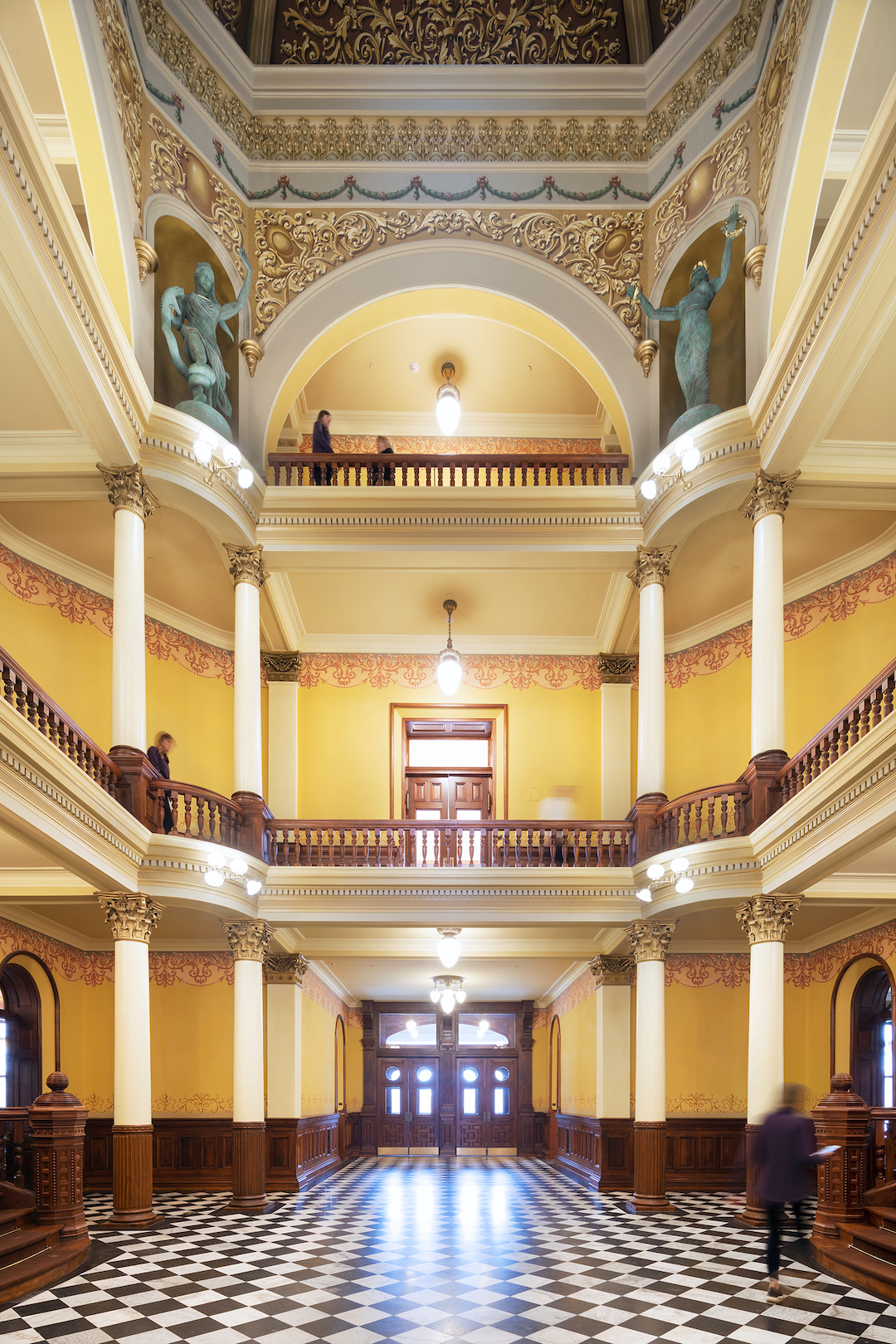 Photo: Dan Schwalm Photography.
Photo: Dan Schwalm Photography.
The project not only needed to accommodate a large construction crew (over 3,900 people were employed to work on various components over the four-year project), but also over 300 state employees that worked on-site in the Herschler Building. The Herschler project was phased in a way that allowed for half of the building to remain occupied while the other have was renovated and the expansion was built. When the first phase was completed, the employees were moved to the new half while construction commenced on the second phase.
The Wyoming Capitol Square project is believed to be the largest of its kind in Wyoming history.
PROJECT INFORMATION: Size 490,401 sf Construction start and finish April 2016 to July 2019 Cost $252,600,000 Delivery method CM/Risk, negotiated
BUILDING TEAM: Submitting firm JE Dunn Construction Owner/Developer State of Wyoming Architect HDR Architecture SE Silman MEP Loring Engineering GC JE Dunn Construction Program Manager MOCA Systems
Related Stories
Multifamily Housing | Nov 29, 2022
Number of office-to-apartment conversion projects has jumped since start of pandemic
As remote work rose and demand for office space declined since the start of the Covid-19 pandemic, developers have found converting some offices to residential use to be an attractive option. Apartment conversions rose 25% in the two years since the start of the pandemic, with 28,000 new units converted from other property types, according to a report from RentCafe.
Reconstruction & Renovation | Nov 8, 2022
Renovation work outpaces new construction for first time in two decades
Renovations of older buildings in U.S. cities recently hit a record high as reflected in architecture firm billings, according to the American Institute of Architects (AIA).
Transportation & Parking Facilities | Oct 20, 2022
How to comply with NYC Local Law 126 parking garage inspection rules
Effective January 1, 2022, New York City requires garage owners to retain a specially designated professional engineer to conduct an assessment and file a report at least once every six years. Hoffmann Architects + Engineers offers tips and best practices on how to comply with NYC Local Law 126 parking garage inspection rules.
Multifamily Housing | Aug 17, 2022
California strip mall goes multifamily residential
Tiny Tim Plaza started out as a gas station and a dozen or so stores. Now it’s a thriving mixed-use community, minus the gas station.
Reconstruction & Renovation | Aug 3, 2022
Chicago proposes three options for Soldier Field renovation including domed stadium
The City of Chicago recently announced design concepts for renovations to Soldier Field, the home of the NFL’s Chicago Bears.
Office Buildings | Jul 19, 2022
Austin adaptive reuse project transforms warehouse site into indoor-outdoor creative office building
Fifth and Tillery, an adaptive reuse project, has revitalized a post-industrial site in East Austin, Texas.
Reconstruction & Renovation | May 4, 2022
AIA course: Concrete buildings — Effective solutions for restoration and major repairs
The history of concrete construction between 1950 and 1970 offers architects and construction professionals a framework for how to rehabilitate these buildings today using both time-tested and emerging technologies. This course, worth 1.0 AIA LU, was authored by Henry Moss, AIA, LEED AP, Principal with Bruner/Cott Architects.
Multifamily Housing | Apr 7, 2022
Ken Soble Tower becomes world’s largest residential Passive House retrofit
The project team for the 18-story high-rise for seniors slashed the building’s greenhouse gas emissions by 94 percent and its heating energy demand by 91 percent.
Reconstruction & Renovation | Mar 28, 2022
Is your firm a reconstruction sector giant?
Is your firm active in the U.S. building reconstruction, renovation, historic preservation, and adaptive reuse markets? We invite you to participate in BD+C's inaugural Reconstruction Market Research Report.
Projects | Mar 18, 2022
Former department store transformed into 1 million sf mixed-use complex
Sibley Square, a giant mixed-use complex project that transformed a nearly derelict former department store was recently completed in Rochester, N.Y.


